Mother cats instinctively know how to provide excellent newborn kitten care.
Most of the time, all you need to do to take care of the newborns is to take care of mama cat by feeding her right and giving her lots of love.
Sometimes, though, you may need to step in to provide newborn kitten care if there is a problem.
During the birth, a mother cat will know exactly what needs to be done to bring her babies into the world and care for them.
In the instance where she has difficulty opening the amniotic sac, you will have to assist her.
How to Help Provide Newborn Kitten Care
Gently tear the sac right under mama cat’s nose, and do it swiftly. Once the amnion is opened, make sure that the mother cat licks the newborn to stimulate breathing.
f she licks and cleans to no avail, then take a warm, rough, damp washcloth and rub the kitten along the back vigorously while holding him. Also make sure there isn’t any mucous blocking his airway.
Do these steps only if absolutely necessary to save the kitten.
If the queen does not tear the sac and clean the newborn herself, there is a chance her maternal instinct will be switched off for this kitten, and she will reject him and no longer care for him.
Signs of a Healthy Newborn Kitten
A healthy newborn will weigh between 2 and 4 ounces at birth and will gain 1/2 ounce each day. He will have good muscle tone and will wiggle and squirm when picked up.
If he is placed on his back, he will right himself. Look out for signs of limpness or listlessness.
Healthy newborn kittens are very active, twitching and jerking when sleeping, and within an hour after birth, they should have good suckle reflexes when a finger is touched to their mouths.
In spite of what you might think, a healthy newborn will be fairly quiet, meowing (or squeaking!) only if hungry or cold.
A newborn kitten should not meow incessantly, as this could be a warning sign that there is a problem with this kitten.
Abandoned Kittens and Other Signs of Maternal Neglect
Sometimes the queen will reject a seemingly normal and healthy kitten. Why is this?
The fact is, mama might know something we don’t about her kitten. Unfortunately, a lack of motherly care could 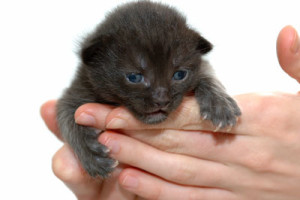 mean that there is an inherent defect in the kitten and he might pass away.
mean that there is an inherent defect in the kitten and he might pass away.
This can be a very tough situation, because you can devote yourself to the demands of newborn kitten care, bottle-feeding and closely monitoring him, and it could still end in heartbreak.
On the other hand, if you do nothing to provide newborn kitten care he surely wont have any chance at life, since the queen wont let him nurse.
Sometimes the reason for neglect has nothing to do with the kitten’s health, and this definitely makes hand raising the kitten worth trying, in spite of the risk.
Caring for Runt Kittens
In the case that there is a runt in the litter of newborn kittens, the queen may not outright ignore him, but if he has trouble competing with his siblings for warmth, she wont go out of her way to care for him, either.
Runt kittens, although significantly smaller than their litter mates, usually grow up to be perfectly healthy, happy cats–as long as they are given a little help and care from their humans.
Oftentimes the only obstacle for the “petite” newborn is getting his own teat.
Kittens will always suckle from the same nipple, so there’s no “taking turns” if the number of kittens outnumbers nipples.
If the litter is too large, you will have to intervene and bottle-feed him/them with a milk substitute (not cow’s milk).
Newborn kitten care, especially bottle-feeding, is not to be taken lightly; newborns need to be fed every two hours.
This article on urgent care will help you.
If you and your family cannot take on the responsibility of providing newborn kitten care, call your local animal hospitals and shelters to see if there are animal foster families or surrogates that are familiar with raising kittens and providing specialized care for newborns.
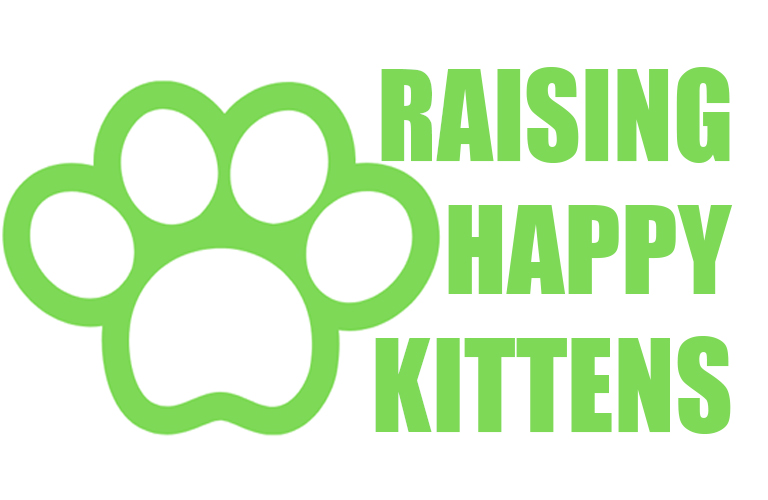

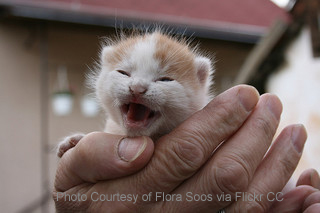
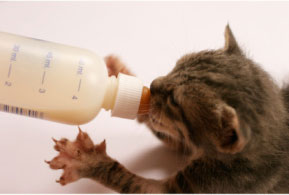
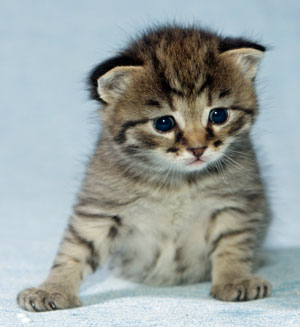
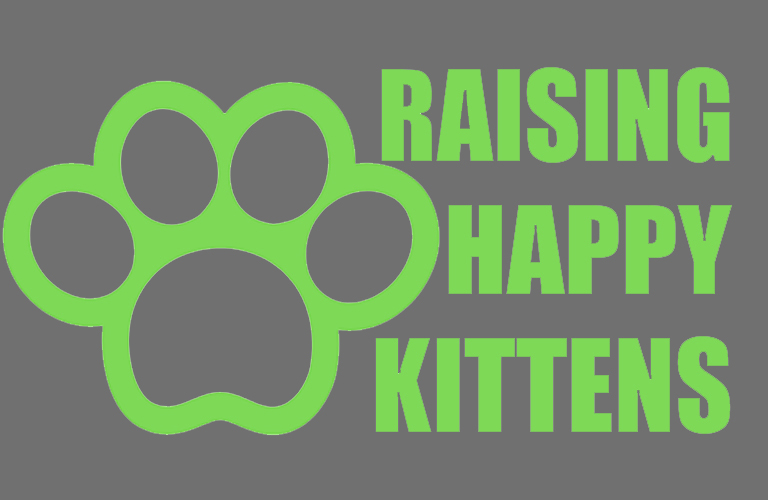
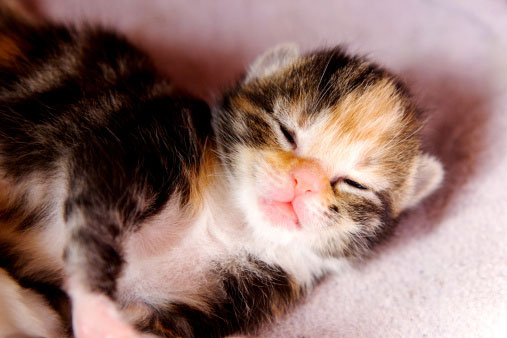
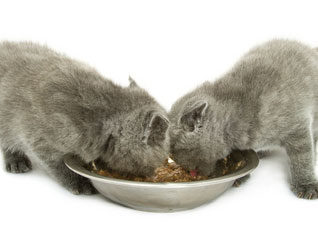
When mother cat is a kitten herself & doesn’t seem to know what to do? Doesn’t take care of afterbirth either?